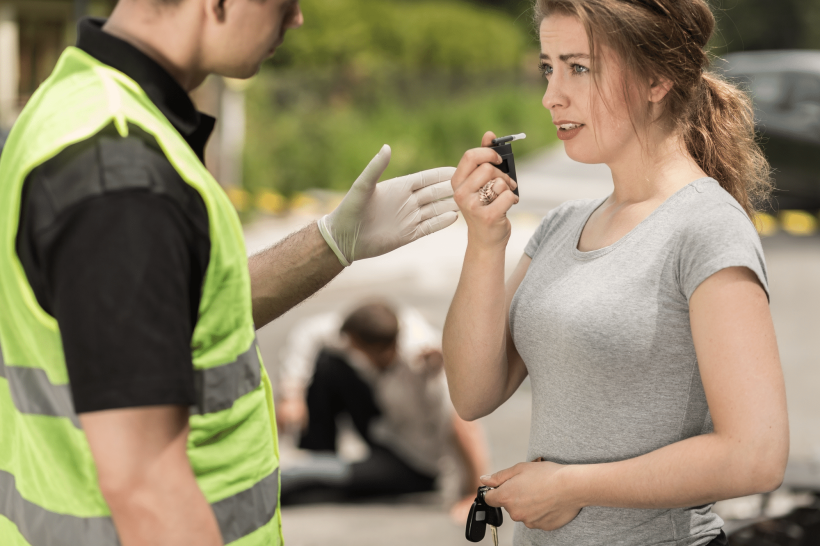For states with medical marijuana laws, finding the right balance between facilitating patient treatment while ensuring on-road safety is crucial. However, accurately measuring impairment from marijuana use has been a challenge. A new federally funded study, published by the Journal of Breath Research, suggests a future where marijuana breathalyzers could help law enforcement officers assess impairment levels – however, according to the study: that moment is not now.
Join CannaMD as we explore what went wrong and what needs to change before marijuana breathalyzers become a staple of police-issued impairment testing.
Marijuana Breathalyzers & THC
Like alcohol and many prescription medications, marijuana has the potential to impair cognitive function and motor skills, making it unsafe to drive or engage in certain activities. A recent pilot study investigated the possibility of using a breathalyzer test to detect THC, the main psychoactive component of marijuana, in breath aerosols.
THC, short for delta-9-tetrahydrocannabinol, is the chemical compound responsible for the psychoactive effects of marijuana. When marijuana is smoked or vaporized, THC is absorbed into the bloodstream and eventually metabolized by the liver. THC can also be detected in breath aerosols after inhalation.
According to researchers:
As a deterrent to cannabis-impaired driving, some states have defined per se blood limits for THC, while others have adopted zero-tolerance policies for THC or its metabolites….
While whole blood THC concentrations above 5 ng ml−1 have been associated with driving deficits in occasional cannabis users, THC concentration in blood has not been consistently correlated to driver impairment.
THC is lipophilic and has limited solubility in blood, which means it can be stored in fatty tissue, resulting in prolonged and non-uniform release into blood. For daily users who resided on a closed research unit, THC remained detectable in blood for days and even weeks after cannabis use.
Translation? The presence of THC isn’t a guaranteed indicator of impairment, and – most challenging for those seeking to develop tests, like the one we’re discussing today: THC can stay in the body for a long time. So knowing whether someone smoked immediately before driving or days beforehand can be difficult (whether using blood or breath tests).
Study Details
The breathalyzer test used in the present study involves a device called an impaction filter. Impaction filters collect breath aerosols, which are tiny particles in the breath, including THC. The impaction filter captures particles smaller than 5 micrometers in diameter. These collected breath aerosols are then analyzed using a technique called liquid chromatography-tandem mass spectrometry (LC-MS/MS) to detect the presence of THC.
While researchers found that detecting THC in the breath was possible, using it as a single measurement could not reliably indicate recent cannabis use. As Tara Lovestead, co-author and National Institute of Standards and Technology (NIST) supervisory chemical engineer, explains:
In many cases, we would not have been able to tell whether the person smoked within the last hour based on the concentration of THC in their breath.
The study’s authors note that quantitative values were broadly comparable to other pilot studies with different devices, sampling protocols, and participant characteristics. However, larger studies with verified abstinence and more post-use timepoints are necessary to generate statistically significant data.
The Future of Marijuana Breath Tests
Expanding on her comments, Lovestead added:
One key question that we cannot yet answer is whether breath measurements can be used to distinguish between a person who uses cannabis regularly but hasn’t done so lately, and someone who consumed an hour ago. Having a reproducible protocol for breath measurements will help us and other researchers answer that question.
Another important question revolves around cannabis consumption methods. While the present study only looked at smoked marijuana, according to Cinnamon Bidwell, a University of Colorado Boulder researcher, studying additional routes of administration, such as edibles and tincture oils, are “important future directions for cannabis and breath detection work.”
Importantly, as an NIST representative emphasized to Marijuana Moment, the agency “is not [currently] working on developing a roadside breathalyzer device” but instead seeking to better understand “the basics of how to accurately measure THC and related compounds in breath.”
The present study’s findings open the door for future research and the development of a reliable marijuana breathalyzer test. Such a test would not only assist law enforcement agencies in accurately assessing impairment levels during roadside checks, but also help medical professionals monitor patients using medical marijuana more effectively.
As more information becomes available, CannaMD will continue to keep readers updated.
